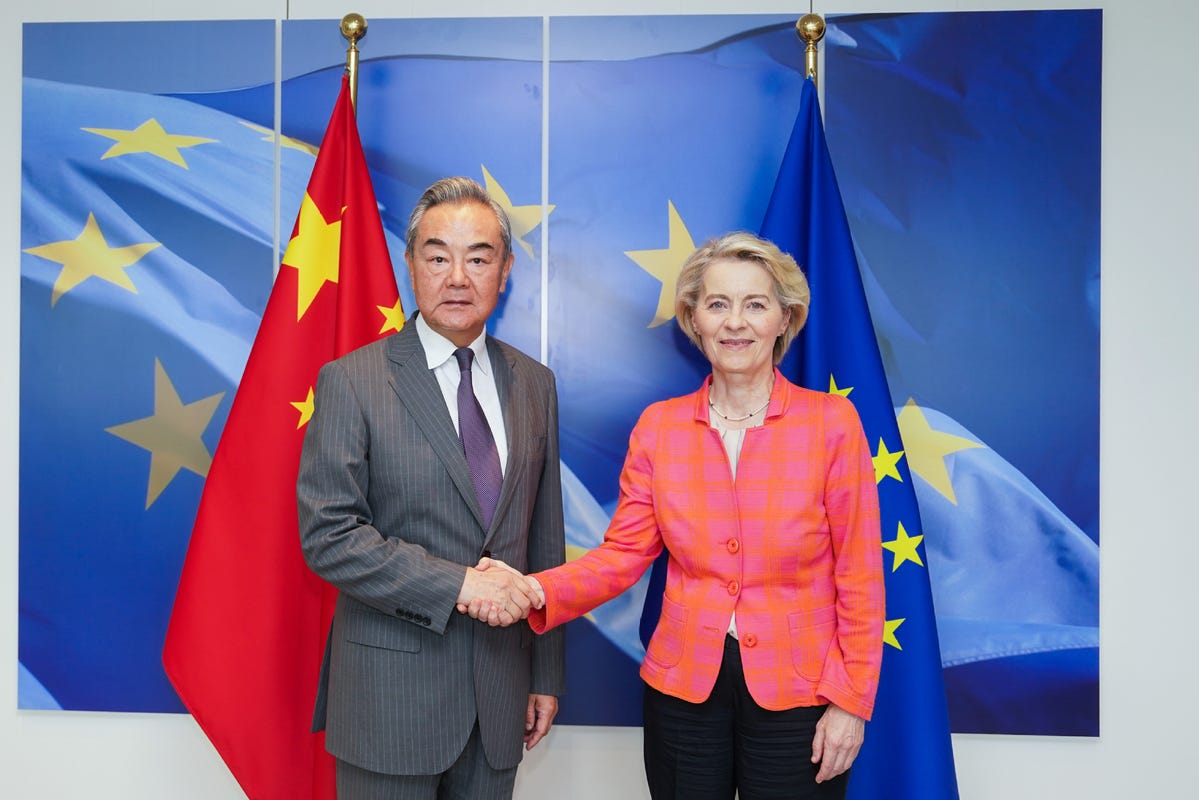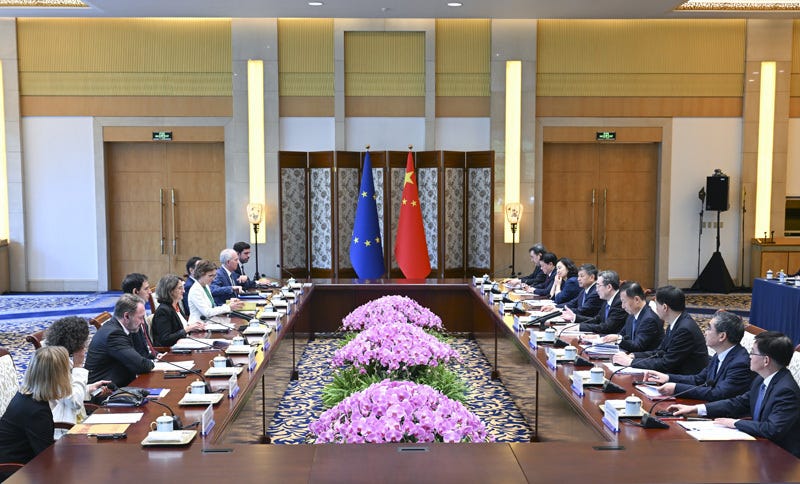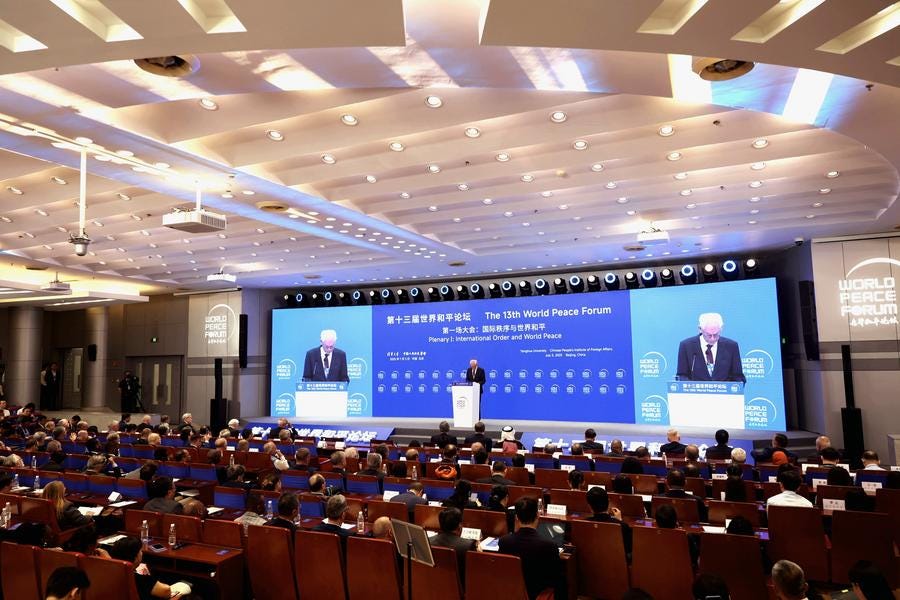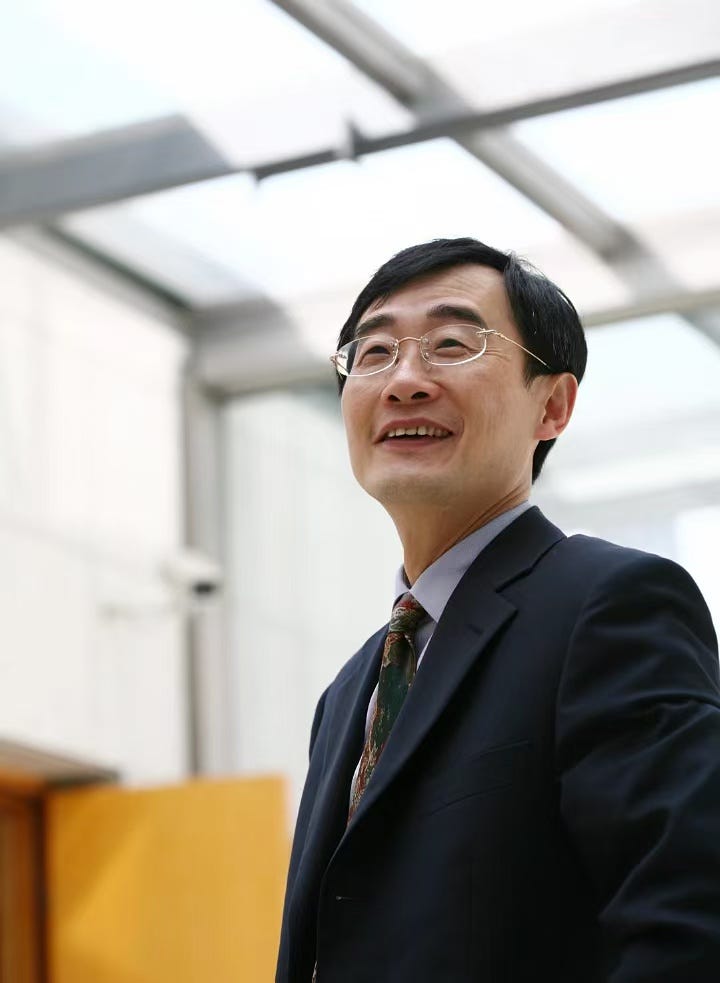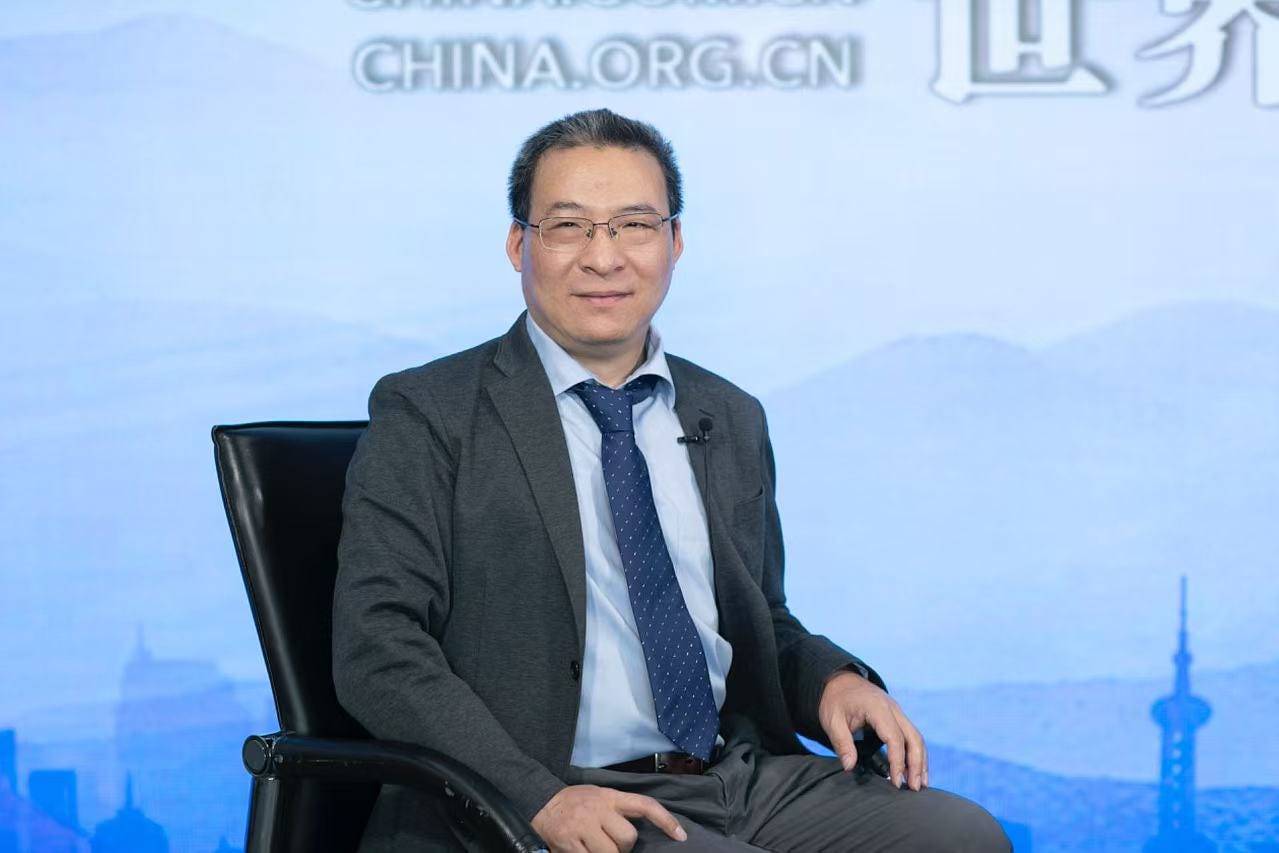Can dialogue ease Europe’s anxieties as China-EU summit approaches?
Marking 50 years of diplomatic ties, the summit offers a chance to reflect on past achievements and chart the next chapter of China-EU cooperation
Good morning. As the upcoming China-EU summit draws near, we’ve invited two leading experts to share their insights on a relationship that’s once again capturing global attention.
According to the EU, the meeting is scheduled for July 24 in Beijing. The President of the European Council, António Costa, and the President of the European Commission, Ursula von der Leyen, will meet Chinese President Xi Jinping. However, China has yet to make an official announcement, as its diplomatic protocol typically discloses leaders' foreign engagements only a few days in advance.
This year's summit holds special importance as it coincides with the 50th anniversary of diplomatic relations between China and the EU. Earlier this month, Wang Yi, a member of the Political Bureau of the Communist Party of China (CPC) Central Committee and China’s Foreign Minister, visited the EU headquarters in Brussels, as well as Germany and France, underscoring the importance both sides attach to this relationship.
Wang told European Commission President Ursula von der Leyen that the upcoming China-EU leaders' meeting is a significant event taking place at a critical juncture. China looks forward to working with the EU to summarize the valuable experience and important insights from the past 50 years of China-EU relations, and map out the future direction of dialogue and cooperation for the next 50 years.
This week also saw a key event between China and the EU. On July 14, Chinese Vice Premier Ding Xuexiang held the sixth China-EU High-Level Environment and Climate Dialogue jointly with Teresa Ribera, Executive Vice President of the European Commission. Cooperation in environmental protection and climate protection is one of the few fields in which China and the EU have few disputes.
Also, earlier this month, the 13th World Peace Forum (WPF) held at Tsinghua University also discussed China-EU relations. When addressing the opening ceremony of the forum, former President of the European Council Herman Van Rompuy called for more dialogues between countries, governments and peoples, expressing optimism regarding an upcoming China-EU summit.
His opinions on China-EU relations were echoed by Shi Mingde, former Chinese ambassador to Germany. When speaking at a panel discussion focusing on China-EU ties, Shi reiterated that China-EU relations should not be affected by a third country, saying that the upcoming China-EU summit will be a valuable opportunity where both sides can reflect on the achievements the two sides have made over the past 50 years, and take a closer look at the problems at hand.
Former President of the European Council Herman Van Rompuy addressing the World Peace Forum
At the invitation of Beijing Scroll, two Chinese experts have contributed insightful articles on China-EU relations, with a focus on the upcoming summit, and we have translated them verbatim into English. Their analysis delves into the current dilemmas and concerns within the EU, which are shaping—and at times distorting—European perceptions of its relationship with China.
Prof. Ding Chun is director of the Center for European Studies, Fudan University, and vice president of the Chinese Association for European Studies. He believes that the upcoming China-EU summit will test whether both sides can rebuild trust and stable cooperation amid rising tensions and protectionism. Despite differences, the article urges China and the EU to focus on dialogue and practical collaboration, as their partnership remains crucial for global stability.
Back at the crossroads -- Looking at next 50 years of China-EU relations through lens of upcoming summit: view from Prof. Ding Chun
The upcoming China-EU summit once again draws international attention to this half-century-old bilateral relationship that has weathered many storms.
At a time of geopolitical fragmentation, global economic slowdown, tariff hikes and rising protectionism, the meeting is not only of commemorative significance but a real test: can China and the European Union (EU) rebuild a stable, mature, and sustainable cooperation framework in an environment of growing differences?
Currently, expectations for the summit's outcomes are more cautious. Observers anticipate that during the summit, both sides will reaffirm their support for dialogue mechanisms, express a willingness to deepen cooperation in new areas such as green and digital development, and emphasize the need to manage differences properly.
Compared to previous idealism, such expectation reflects the status quo of bilateral relations as well as their corresponding stance and policy atmosphere.
Over the past 50 years, China-EU relations have expanded from initial economic exchanges to a comprehensive relationship spanning politics, security, culture, and global governance. The China-EU Comprehensive Strategic Partnership, established in 2003, was a testament to a high degree of mutual trust and a shared aspiration between the two sides.
In recent years, tensions and misunderstandings between China and the EU have continued intensifying. Within the EU's three-dimensional policy approach to China -- partner for cooperation, economic competitor, and a systemic rival -- the "rival" tone has become increasingly prominent, eroding the fundamental trust that underpins bilateral cooperation.
China has consistently advocated for the partnership. However, the status quo of China-EU relations and the EU's stance on China stand in stark contrast to it, with a clear deficit in strategic coordination and political trust.
Moreover, the EU's concerns and criticisms on issues regarding China's institutional model, the so-called "overcapacity," and human rights have recently become more intense. Internal political considerations partly drove these concerns, but many of them have been overstated and detached from facts.
For example, when simply attributing China's advantages in electric vehicles (EVs) and green energy to subsidies, they have overlooked China's long-term investments in innovation chains, infrastructure, and industrial organization. At the same time, accusations of so-called "forced labor" in Xinjiang were often forged in disregard of China's efforts in opening access to third-party inspections and data clarifications.
China never shies away from differences but advocates resolving them through dialogue based on facts.
The fundamental issue lies in the difference in perception: does the EU see China as a threat to its value system, or as an important partner in dealing with global challenges?
The EU side is choosing a tougher economic policy towards China, taking politicized actions such as launching anti-subsidy investigations into Chinese EVs and restricting high-tech cooperation with China. The escalating accusations have seriously impacted the stability of global industrial chains.
China, by contrast, has continuously called for resolving disputes within the WTO framework and advocated open markets and mutually beneficial cooperation.
Facts have proven that protectionism will not bring recovery; only dialogue and cooperation can build resilience.
China and the EU are naturally complementary on global issues such as climate change, AI governance, and public health. They should work together to become a model of win-win cooperation instead of restraining each other as rivals. Applying a zero-sum mindset will not only miss opportunities for cooperation but also exacerbate the fragmentation of the global multilateral system.
This year marks the 50th anniversary of the establishment of China-EU diplomatic ties. Building on this milestone, both sides should reassess the strategic importance of their relations -- not just summarizing the past but also envisaging the future.
China and the EU urgently need to reopen channels, rebuild trust, and reshape mechanisms regarding high-level dialogue, people-to-people exchanges, and sub-national cooperation. Existing platforms such as the China-EU green partnership and the China-EU High-level Digital Dialogue need further institutionalization and strategic enhancement, promoting the establishment of a "sustainable strategic partnership" and ensuring the partnership is truly "comprehensive" in practice.
For Europe, it is also necessary to guard against the politicization of economic and trade disputes and to prevent ideology from spilling over into areas like technology and industry, which should remain neutral.
If the EU wants to maintain its image as a defender of global rules, it must formulate policies based on rules rather than geopolitical games. Decoupling from or excluding China will not enhance its so-called "strategic autonomy," but will only limit its room for maneuver.
Looking forward to the next 50 years, China-EU relations should focus on managing differences instead of eliminating them; on shaping stability instead of creating confrontation.
The two sides should seek common ground while accommodating differences. A rational and healthy China-EU relationship not only concerns the well-being of 1.9 billion people but also carries crucial significance for world peace and the stability of the multilateral order.
The China-EU summit has yet to be held, but its preparatory process has already sent a positive signal: dialogue is still going on, and cooperation remains necessary.
The direction of China-EU relations in the future depends not on who is stronger, but on whether mutual trust and understanding are chosen. The future needs to begin with rational dialogue, time and again.
Prof. Zhao Yongsheng is a researcher and head of the French economy research center at the Academy of China Open Economy Studies, University of International Business and Economics. He is currently a visiting scholar at Sorbonne University in Paris. In Zhao's article, he argues that the real source of China-EU tensions on economic and trade issues lies in Europe's "three anxieties:" being sidelined by the U.S. in global affairs, unease over trade imbalances, and a deep-seated fear of declining industrial capacity. While these concerns fuel restrictive measures, the EU still relies on China's vast market, advanced technologies, and industrial strength to realize its re-industrialization goals, making continued cooperation both necessary and resilient.
Three anxieties on EU's side are hampering China-EU economic cooperation: views from Prof. Zhao Yongsheng
This year marks the 50th anniversary of the official establishment of diplomatic relations between China and the European Union (EU). Over the past half-century, China-EU relations have achieved considerable development. In particular, economic and trade cooperation has become the cornerstone for the stable and healthy development of bilateral relations.
However, in recent years, the EU has imposed so-called punitive tariffs or taken restrictive measures against China in areas such as electric vehicles and the purchase of medical devices, proposed to "de-risk" from China, and called for strengthening trade barriers to protect the European economy from the impact of Chinese goods.
How come these "noises" are in the "harmonious sounds" of economic and trade cooperation between China and Europe?
Despite the noises, likely, the main tune of China-EU economic and trade cooperation will not be negatively affected. The foundation of such cooperation remains solid and the fundamentals remain good. China and the EU are important trade partners to each other, with a bilateral trade volume stable at around 2.7 billion U.S. dollars daily, and China has maintained its position as the second-largest trading partner of the EU for many consecutive years.
In short, in spite of the ups and downs in China-EU economic and trade relations over the past few decades, in the context of relations among major economies, their major characteristics have always been stability and resilience.
So how come the clamor? I believe that it stems from the three major anxieties of the EU and its member states, namely "being-at-the-table anxiety," "economic and trade anxiety," and "re-industrialization anxiety."
The anxiety of "being-at-the-table" originates from European countries' relations with the U.S. It is well known that while the U.S. is theoretically the closest ally of the EU, it arbitrarily refuses to let the EU "sit at the table" in negotiations of key issues, such as the Russia-Ukraine conflict. As a result, the EU and its members developed an anxiety of being left out. Therefore, when dealing with countries other than the U.S., especially major powers like China, the anxiety kicks in.
The EU has always raised the Russia-Ukraine conflict and Iran's nuclear weapons as key issues to China. But as is known to all, neither of these issues was caused by or exacerbated by China. Instead, China did its best to solve and defuse the situation. By throwing these two issues at China, policymakers of the EU exhibit a loss of composure, indicating the worsening of their anxiety.
The second anxiety has to do with the economy and trade. The EU, along with China and the U.S. are referred to as the world's three major economies. Yet when dealing with the three groups of economic and trade relations: that between Europe and the U.S., between China and Europe, and between China and the U.S., the EU and its member states are more likely to fall into "economic and trade anxiety" than the other two.
The underlying logic is simple. The United States, a global leader in many fields, holds a more powerful and proactive position in economic and trade relations with other countries and regions, and naturally is less likely to develop anxiety in comparison with the other two. As for China, which is slightly behind the United States in overall strength but is catching up with the U.S. in some fields, it has developed a large economy that champions and adheres to the principles of free trade, economic openness and globalization. It also has little reason to be anxious.
Of the aforementioned three groups of economic and trade relations, the complementarity and mutual penetration of the economic and trade relations between China and the U.S. are quite high, and reaching a consensus is not all hard. In the meantime, although there seem to be many obstacles in China-EU economic and trade relations for the time being, it is also highly complementary. From a practical perspective, it is not difficult for the two sides to reach an agreement.
The economic and trade relations between Europe and the U.S., on the other hand, are the most difficult of the three to handle. Although the EU refer to the U.S. as a "cousin" in certain official documents, since they do not differ as much as China and the U.S. in terms of development stage and industrial advantages, and both are developed economies with similar development paths and industrial layouts, the economic and trade complementarity between the U.S. and the EU is far lower than that between China and the U.S. and between China and the EU.
This is also why, while the United Kingdom and the U.S. reached a basic agreement early on and China and the U.S. have agreed on a framework, economic and trade negotiations between the EU and the U.S. remain fraught with difficulties. In fact, progress on this front has been the slowest among the three major relationships.
The third anxiety lies in the EU's prospects of re-industrialization. The two aforementioned anxieties, though both important, are on a superficial level. The "re-industrialization anxiety," on the other hand, touches on the more profound parts of the EU's mindset.
Let us take France as an example. France once surpassed the United States in manufacturing and was once the world's top manufacturing country. However, with the gradual implementation of the "de-industrialization" policy and the acceleration of the trend, France's manufacturing industry has long since fallen behind. Its industrial chain and value chain, in the meantime, became fragmented and highly dependent on large economies such as China and the U.S.
When looking at the relations between China and the EU, it can be deduced that China can certainly lend a hand to their "re-industrialization." To be fair, China is perhaps the only country that is both willing and able to do so, and can be a reliable strategic partner to France and the EU in this regard. Below are three reasons that support this claim.
First, in terms of economic aggregate, China's nominal GDP in 2023 was 17.67 trillion U.S. dollars, second only to that of the United States. If calculated by purchasing power parity (PPP), China has surpassed the United States. In terms of economic growth rate, China has become the largest contributor to the world's GDP in absolute terms.
Secondly, Chinese enterprises are brimming with innovation and have become the world's innovation centers in some fields. The number of unicorn companies in China is second only to that of the U.S. In the fields of artificial intelligence (AI) and the chip industry, China is also developing rapidly to be the world's largest chip producer. In the meantime, China's electricity generation is greater than the combined total of the U.S., the EU and India.
Thirdly, for the readers' reference, here are eight industrial sectors in which China leads the world.
5G technology. China's Huawei holds 8,400 5G technology patents, accounting for 15 percent of the world's total. Many European enterprises even regard Huawei as their strategic partner.
Artificial intelligence. By 2024, there were 4,500 AI professional enterprises in China. In 2024 alone, 114 AI startups were born in China, among which 58 received an average of tens of millions of US dollars in investment.
High-speed railway. By 2024, China had 162,000 kilometers of railway, of which 48,000 kilometers are high-speed, ranking first in the world.
New energy vehicles. In 2024, the production and sales volume of new energy vehicles in China were 12.89 million and 12.87 million, respectively, with growth rates of 34.4 percent and 35.5 percent. German car manufacturers have regarded Chinese car manufacturers as strategic partners.
Satellite Navigation. In 2023, China's satellite navigation services reached 536 billion yuan, and 137 countries have signed cooperation agreements with China's BeiDou Navigation System.
Mobile Payment. By 2024, a total of 1.029 billion people in China were using mobile payments, an increase of 195.2 percent compared to 2017. China's online sales and mobile payment penetration rates both rank first in the world.
Lithium batteries. China owns 78.6 percent of the world's battery production capacity and is home to six of the world's top 10 battery manufacturers.
Household Robots. Since 2023, the production of household robots in China has increased sharply. In 2024, Chinese hotels will already have 30,000 robots, and a new robot training center will be opened in Shanghai in the same year.
In conclusion, the foundation for China-EU economic and trade cooperation remains steady, and its fundamentals remain promising, and continue to show stability and resilience. The reason behind the noises that disturb this cooperation is the three anxieties on the EU's part, namely "being-at-the-table anxiety" "economic and trade anxiety" and "re-industrialization anxiety."
To achieve its goal of re-industrialization, the EU and its members need the help of Chinese technologies, capital and strategies. After all, there aren't many countries that can and want to help the EU reach this goal.




